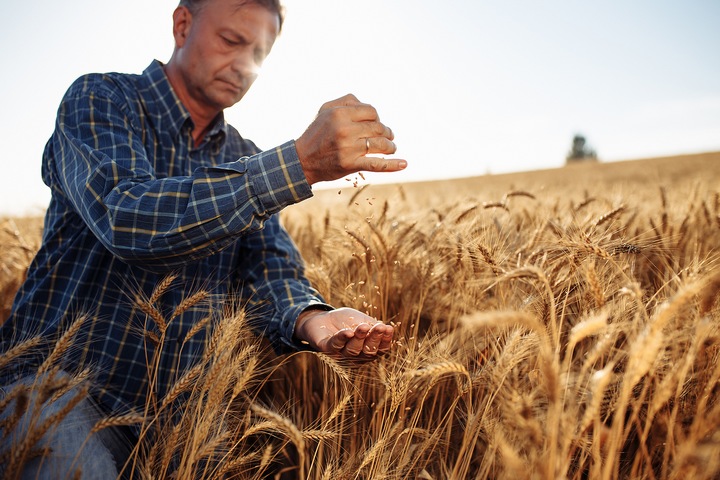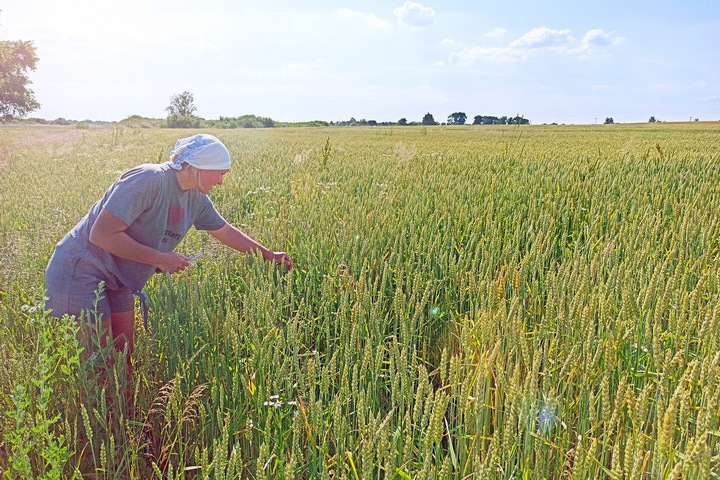
The art of farming is as old as the history of our species itself. Humans have learned to cultivate the land for long periods to plant and harvest crops. The modern farming industry is no different, as many farmers are skilled in their craft. Take the work of a grain farmer, for example.
Grain farmers have their line of work that is tended to daily. Grains are planted meticulously to kickstart the process, followed by harvesting and storing. Then, each respective product is shipped out to various parties to be sold. If this sounds like an interesting career path for you, you may be interested in learning more about the day-to-day work.
Here is more information about how to be a grain farmer:
1. Gain farming experience.

Unlike many conventional career paths, becoming a grain farmer can be quite unorthodox. Owning a plot of land for farming purposes can be a pretty expensive one, and many upstarts do not have money. Before finding a solid stream of capital, why not allow yourself to be mentored by a veteran grain farmer?
By going under the wing of these individuals, you will gain on-the-job experience. Many prospective farmers get their start by going down this path. Look for rural-based areas in your region to see if there are any opportunities present. You never know what door may be open to you!
2. Learn about grain farming.

Like gaining the right experience, pursuing the correct education can also be tricky. Prospective grain farmers should look at specific types of academic programs from a post-secondary institution. This could include taking a degree in agriculture at a college that offers the opportunity.
Supplementary educational programs could vary in their subject matter. For instance, a student may wish to take a couple of courses in business administration or crop production. The knowledge gained here will assist the grain farmer in ways they never thought possible. You can never have too much education, after all.
In addition, you will need to learn about the various technology systems involved in grain farming. For example, did you know that grains need to be stored under the optimal conditions to preserve their quality? Many farmers use a grain bin moisture monitoring system to manage the climate levels. As a grain farmer, you should familiarize yourself with these useful technology systems.
3. Know the farm land.

Established grain farmers may have different techniques for honing their craft. For those just setting out on this path, it is important to be familiar with each plot of land. Grain farmers can detect what parts of the land could be the most useful for growing purposes.
For example, there could be an area of the land that is more exposed to sunlight than others. Some grains require a hefty amount of natural light to grow as efficiently as possible. Take the time to survey each part of the land to know the advantages and potential drawbacks.
4. Understand the grain growth.

Speaking of effectively growing grains, it is important to give it the right circumstances for development. Grains of all kinds can provide grain farmers with an abundance of resources for their lives. This is only valid if the right factors are given to the areas targeted for grain development.
Take a look at how the sunlight hits your plot of land. Once this is taken care of, you will want to ensure that the soil is ripe for growth. It may require more water or fertilizer to bolster the specific grain’s development. All grains need to be given care, from quinoa to whole oats, at this stage!
5. Sell your products with marketing.

As mentioned previously, a few educational programs can go a long way in your career. One such business strand that all grain farmers should take seriously is that of marketing. Thankfully, you have various digital tools at your disposal to use. Social media is your primary line of attack.
You can use the myriad of platforms for marketing your grain farm in several ways. You can make short TikTok videos to show how fun the career can be in a unique, witty manner. Or, you can use Facebook as your main hub for all contact information. No matter your choice, always be sure to market your business accordingly!
6. Manage the grain farm like a business.

Owning and running a grain farm is not an easy feat. It is just like any other business, which will involve a lot of hard work and moving dynamics. You will have to forecast your earnings and maximize the profits made versus the crops yielded.
While it can seem somewhat discouraging, it does not have to be. Grain farmers are known for their incredible work ethic and passion for the field. Plus, you can be a part of a community that helps each farmer in different ways. You just need the right attitude and work ethic to be an awesome grain farmer!









